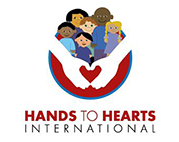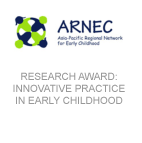Nurturing relationships between children and their parent(s) or caregivers can be likened to an inoculation against the negative, lifelong problems that can develop from a childhood filled with adverse experiences. When families are grappling with disease, violence, mental health issues, poverty, and other serious adverse experiences, children are exposed to toxic levels of stress that can have lifelong negative implications for that child and their greater community. This recent Opinion piece in the New York Times does a great job explaining this. And it describes what HHI has been doing for almost eight years, for more than 140,000 vulnerable children around the world.
HHI has a very similar approach and results, though our program is more simplistic. I believe that the “aha moment” that they refer to for a mother they describe, that is love awakening, and once that wakes up, nothing stays the same.
Protecting Children From Toxic Stress
By DAVID BORNSTEINImagine if scientists discovered a toxic substance that increased the risks of cancer, diabetes and heart, lung and liver disease for millions of people. Something that also increased one’s risks for smoking, drug abuse, suicide, teen pregnancy, sexually transmitted disease, domestic violence and depression — and simultaneously reduced the chances of succeeding in school, performing well on a job and maintaining stable relationships? It would be comparable to hazards like lead paint, tobacco smoke and mercury. We would do everything in our power to contain it and keep it far away from children. Right?Read the whole article here .Well, there is such a thing, but it’s not a substance. It’s been called “toxic stress.” …. However, children can be shielded from the most damaging effects of stress if their parents are taught how to respond appropriately. “One thing that is highly protective is the quality of the relationship between the parent and the child,” explains Darcy Lowell, an associate clinical professor at Yale University School of Medicine and the founder of Child First, a program based in Shelton, Conn., that has marshaled strong evidence demonstrating the ability to intervene early, at relatively low cost, to reduce the harm caused by childhood stress in extremely high-need families. “Early relationships, where adults are responsive and attentive, are able to buffer the damaging effects on the brain and body,” she says. ….. By developing the ability to read a child’s cues, and by being emotionally available on a daily basis, parents can provide buffers that reduce the harmful physiological effects of high stress. “I feel like I enjoy my daughter more now,” Ana Patricia said. “And she enjoys me as a mother.”Children can be shielded from the most damaging effects of stress if their parents are taught how to respond appropriately.









